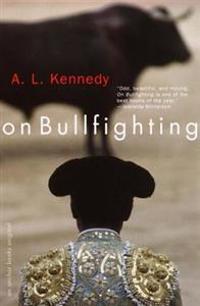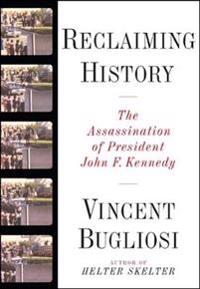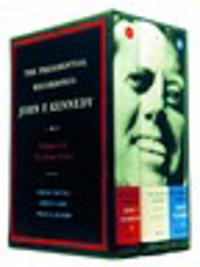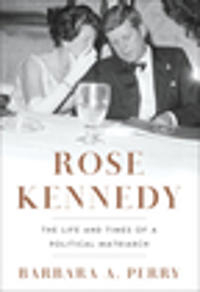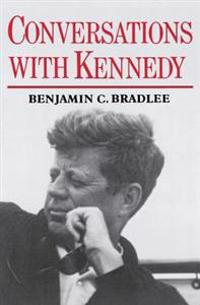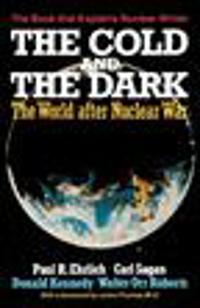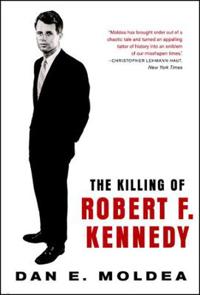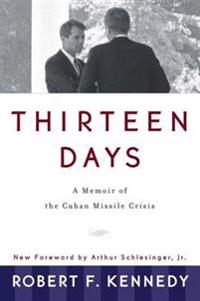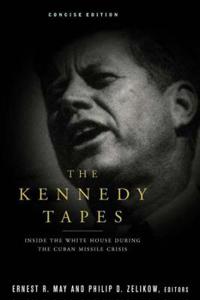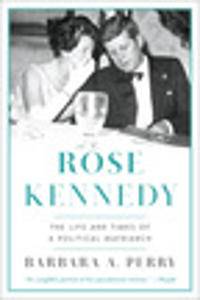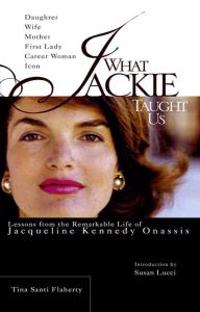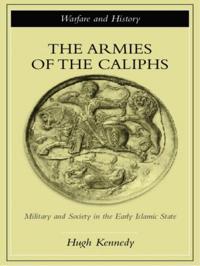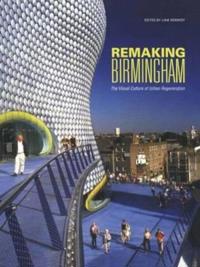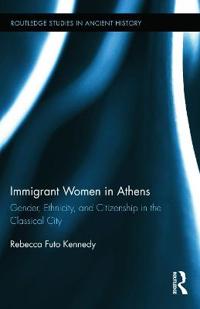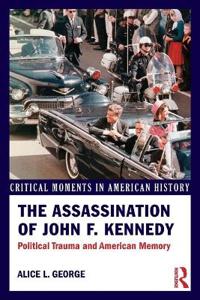On Bullfighting (Häftad)
avA. L. Kennedy
ISBN: 9780385720816 - UTGIVEN: 2001-03An Anchor Books Original
One day, on the brink of despair and contemplating her own mortality, novelist A. L. Kennedy is offered an assignment she can't refuse-an opportunity to travel to Spain and cover a sport that represents the ultimate confrontation with death: bullfighting.
The result [...]Reclaiming History: The Assassination of President John F. Kennedy [With CD] (Inbunden)
avVincent Bugliosi
ISBN: 9780393045253 - UTGIVEN: 2007-05At 1:00 p.m. on November 22, 1963, President John F. Kennedy was pronounced dead, the victim of a sniper attack during his motorcade through Dallas. That may be the only fact generally agreed upon in the vast literature spawned by the assassination. National polls reveal that an overwhelming majorit[...]
Presidential Recordings-John F. Kennedy (Inbunden)
avPhilip D. (EDT) Zelikow, Timothy (EDT) Naftali, Ernest R. (EDT) May
ISBN: 9780393049541 - UTGIVEN: 2001-10These are the first three volumes of the complete transcription of declassified US presidential recordings, annotated by a group of scholars. These volumes cover July-October 1962, revealing Kennedy and top advisers negotiating such events as US covert action in Brazil, racial unrest at the Universi[...]
Rose Kennedy (Inbunden)
avBarbara A. Perry
ISBN: 9780393068955 - UTGIVEN: 201309Training her eye on traits that other biographers have neglected and mining newly released diaries and letters, Barbara Perry captures Rose Kennedy's genuine contributions to her family's political dynasty. Rose's perfectionism created a family image that resonated in the political arena and new twe[...]
John F. Kennedy
ISBN: 9780393081244 - UTGIVEN: 2016-02This volume continues the ambitious project, undertaken by the Miller Center at the University of Virginia, to transcribe and annotate secretly recorded White House tapes. The tapes presented here begin on the day after the Cuban Missile Crisis-and run to 7 February 1963.[...]
Conversations with Kennedy (häftad)
ISBN: 9780393301892 - UTGIVEN: 1984-11Bradlee and his wife Tony participated in the parties at the White House and in more private moments when the president and Jacqueline were relaxing with friends. With Kennedy's knowledge, Bradlee kept notes of their intimate conversations. These records are the basis for this behind-the-scenes reco[...]
The Cold and the Dark: The World After Nuclear War (Häftad)
avPaul R. Ehrlich, Donald Kennedy, Carl Sagan
ISBN: 9780393302417 - UTGIVEN: 198406The Killing of Robert F. Kennedy
ISBN: 9780393315349 - UTGIVEN: 1997-03On June 5, 1968, Robert F. Kennedy was shot in the pantry of the Ambassador Hotel in Los Angeles; his death the following day stunned a nation still recovering from John F. Kennedys assassination five years earlier. Officials insisted, however, that this was not "another Dallas": this was an open-an[...]
Thirteen Days: A Memoir of the Cuban Missile Crisis (Häftad)
avRobert F. Kennedy, , ,
ISBN: 9780393318340 - UTGIVEN: 199911In October 1962, when the United States confronted the Soviet Union over its installation of missiles in Cuba, few people shared the behind-the-scenes story as it is told here by the late Senator Robert F. Kennedy. In this unique account, he describes the hour-by-hour negotiations, with particular a[...]
The Kennedy Tapes (Häftad)
avErnest May
ISBN: 9780393322590 - UTGIVEN: 200203The events of the Cuban Missile Crisis unfolded in the actual words of President John F. Kennedy and his top advisers. Now available in a new, concise edition, this book retains its gripping sense of history in the making.[...]
Rose Kennedy (Pocket)
avBarbara A. Perry
ISBN: 9780393349467 - UTGIVEN: 2014-07In her compelling and intimate portrait, presidential historian Barbara A. Perry captures Rose Kennedy's essential contributions to the incomparable Kennedy dynasty. This biography-the first to draw on an invaluable cache of Rose's newly released diaries and letters-unearths the complexities behind [...]
What Jackie Taught Us: Lessons from the Remarkable Life of Jacqueline Kennedy Onassis (Inbunden)
avTina Santi Flaherty, Liz Smith
ISBN: 9780399167607 - UTGIVEN: 2014-05She was a woman of confidence and passion who drew on a remarkable wealth of self-knowledge and a sense of purpose to cope with extraordinary public demands and overwhelming private needs.
"What Jackie Taught Us" offers insights from the life of Jacqueline Kennedy Onassis about how to live with [...]What Jackie Taught Us: Lessons from the Remarkable Life of Jacqueline Kennedy Onassis (häftad)
ISBN: 9780399530807 - UTGIVEN: 2005-04She was a woman of confidence, focus, and passion, and it made her one of the world's greatest sources of inspiration and influence. She drew on a remarkable wealth of self-knowledge and a sense of purpose to cope with extraordinary public demands and overwhelming private needs. How can anyone emula[...]
The Armies of the Caliphs (Pocket)
avHugh Kennedy
ISBN: 9780415250931 - UTGIVEN: 2001-09The Armies of the Caliphs is the first major study of the relationship between army and society in the early Islamic period, and reveals the pivotal role of the military in politics. Through a thorough examination of recruitment, payment, weaponry and fortifications in the armies, The Armies of the [...]
Remaking Birmingham (Häftad)
avKennedy
ISBN: 9780415288392 - UTGIVEN: 200408The city of Birmingham offers a particularly rich case-study on urban regeneration as it strives to build a new city image. Positioned between decline and regeneration, the landscape of the city and its environs collages old and new, producing dramatic contrasts - of industrial and postindustrial ur[...]
Elegy (Övrig)
avDavid Kennedy
ISBN: 9780415367776 - UTGIVEN: 2007-08-21Grief and mourning are generally considered to be private, yet universal instincts. But in a media age of televised funerals and visible bereavement, elegies are increasingly significant and open to public scrutiny. Providing an overview of the history of the term and the different ways in which it [...]
Raising Literacy Achievement In High-poverty Schools (Inbunden)
avEithne Kennedy
ISBN: 9780415540049 - UTGIVEN: 2013-09-12Deterrence and Crime Prevention (Pocket)
avDavid M. Kennedy
ISBN: 9780415588676 - UTGIVEN: 2010-07Deterrence is at the heart of the preventive aspiration of criminal justice. Deterrence, whether through preventive patrol by police officers or stiff prison sentences for violent offenders, is the principal mechanism through which the central feature of criminal justice, the exercise of state auth[...]
Immigrant Women in Athens (Inbunden)
avRebecca Kennedy
ISBN: 9780415737869 - UTGIVEN: 2014-05Many of the women whose names are known to history from Classical Athens were metics or immigrants, linked in the literature with assumptions of being 'sexually exploitable.' Despite recent scholarship on women in Athens beyond notions of the 'citizen wife' and the 'common prostitute,' the scholarsh[...]
Evaluating E-learning (Pocket)
avRob Phillips, Carmel Mcnaught, Gregor Kennedy
ISBN: 9780415881944 - UTGIVEN: 2011-09-06Responsive School Practices To Support Lesbian, Gay, Bisexual, Transgender, And Questioning Students And Families (Pocket)
avEmily S. Fisher, Kelly S. Kennedy
ISBN: 9780415890748 - UTGIVEN: 2012-06-28The Assassination of John F. Kennedy (Häftad)
avAlice George
ISBN: 9780415895576 - UTGIVEN: 201210On November 22nd, 1963 the assassination of President John F. Kennedy set into motion a series of events that irrevocably changed American politics and culture. The media frenzy spawned by the controversy surrounding the death of JFK has since given way to a powerful public memory that continues to [...]
John F. Kennedy (Häftad)
avJason K. Duncan
ISBN: 9780415895637 - UTGIVEN: 2013-12Half a century after his assassination, John F. Kennedy continues to evoke widespread fascination, looming large in America's historical memory. Popular portrayals often show Kennedy as a mythic, heroic figure, but these depictions can obscure the details of the president's actual achievements and c[...]

